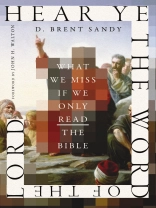ECPA Top Shelf Book Cover Award
Long before the words of the Bible were written, God's communication through the spoken word rang out loud and clear. Jesus in particular commissioned representatives to speak on his behalf even during the time of his earthly ministry. And yet today we are a reading culture. It is easy for modern Christians to take for granted that the Bible was handed down in written form, but the way we receive God's message is far different from how the original...
विषयसूची
Foreword by John H. Walton
Part One: Setting the Stage
Proposition 1: Oral Culture Can Be a Lost World
Proposition 2: God Reached Across Great Distances—So Must We
P...
लेखक के बारे में
John H. Walton (Ph D, Hebrew Union College) is professor of Old Testament, emeritus, at Wheaton College and Graduate School. His many books include The Lost World o...












